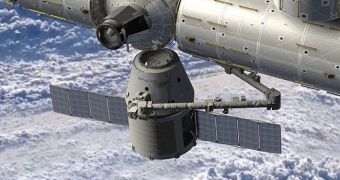According to officials form the Hawthorne, California-based Space Exploration Technologies Corporation (SpaceX), it would now appear that the Dragon space capsule is unlikely to take off on May 7, as planned.
An announcement made yesterday, May 2, indicates that the company has yet to complete software checkout procedures necessary in order for NASA to approve the space capsule's launch. This is the first private vehicle to attempt to dock with the International Space Station (ISS).
Originally, this mission was supposed to launch last year, but various issues have forced SpaceX and NASA to constantly delay takeoff. A lot is hanging in the balance here, both for the company and the private spaceflight industry as a whole.
The Dragon capsule is being developed under a $1.6 billion Commercial Orbital Transportation Services (COTS) program contract between SpaceX and the American space agency. The former needs to complete 12 resupply flights to the ISS over the next few years, Space reports.
If Dragon fails or, worse still, somehow damages the $100 billion orbital lab, the future of the entire private spaceflight industry will be brought into question. The international partners involved in the financing and assembling the station are unlikely to approve other similar attempts at docking.
“At this time, a May 7th launch appears unlikely. SpaceX is continuing to work through the software assurance process with NASA. We will issue a statement as soon as a new launch target is set,” SpaceX spokeswoman Kirstin Brost Grantham said in a recent statement.
Though a clear launch date has not yet been set, some have suggested May 10 as a potential time. Dragon will take off aboard the SpaceX Falcon 9 medium-lift delivery system, from Space Launch Complex 40 (SLC-40) at the Cape Canaveral Air Force Station (CCAFS), in Florida.
In anticipation of the planned flight, the company tested the engines on its rocket on April 30, but the first attempt failed due to a computer glitch. A second launch attempt was successful, and all issues were resolved.
Even though this is a test flight, Dragon carries actual cargo. Its payload chamber contains food, water, supplies and scientific experiments for members of Expedition 31 aboard the ISS.

 14 DAY TRIAL //
14 DAY TRIAL //